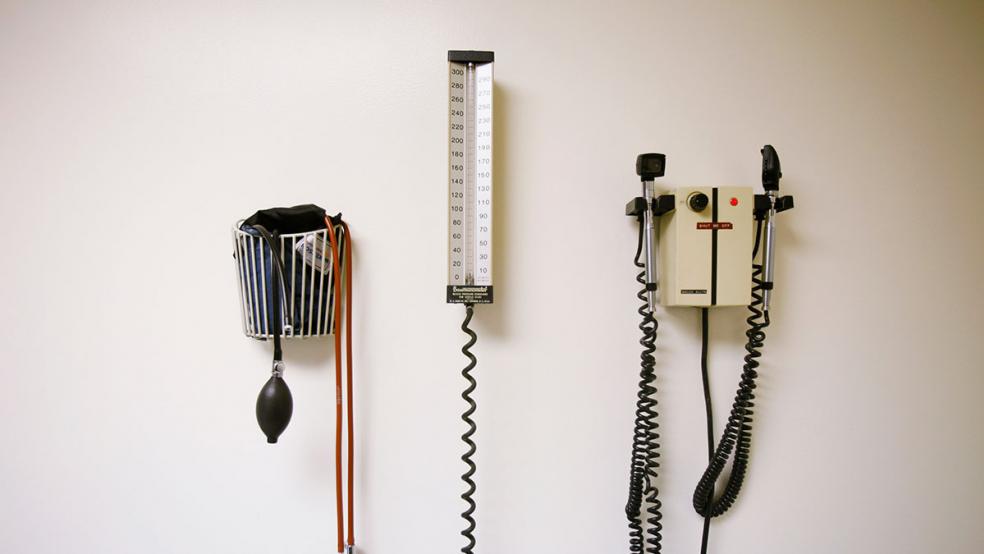Medicaid managers have done little to stem rampant fraud in the massive government health care program for the poor, which totaled more than $29 billion last year, according to a new Government Accountability Office (GAO) report to Congress.
As Medicaid gradually transforms from a traditional fee-for-service operation to managed care, the challenge for federal and state Medicaid officials to weed out fraudulent applicants or health care providers has become increasingly difficult.
Related: Audit Uncovers $124.7 B of Overpayments and Fraud in Medicare and Medicaid
Yet the Centers for Medicare and Medicaid Services (CMS), which oversees the program, along with state Medicaid officials, have yet to streamline or better coordinate the databases that are essential in ferreting out fraud, according to the new report.
The Medicaid program finances health care coverage for an estimated 69 million beneficiaries with estimated expenditures of $529 billion in fiscal 2015 alone. CMS previously revealed that improper Medicaid payments totaled $29.12 billion in fiscal 2015, or 9.78 percent of total Medicaid expenditures. That was up from $14.4 billion or 5.8 percent of the total in fiscal 2013.
Both Medicaid and Medicare, the premier federal programs to assist low-income Americans and the elderly, have been beset with the problems of illegal overpayments for years, despite calls from Congress and budget watchdog groups for closer scrutiny.
The new GAO study was requested by Sen. Thomas Carper of Delaware, the ranking Democrat on the Senate Homeland Security and Governmental Affairs Committee.
While there are many factors that contribute to the problem, the study focused on Medicaid’s highly fragmented system for checking on the eligibility of applicants to determine whether they qualify for health care coverage.
Related: White House Takes Aim at Billions in Medicare and Medicaid Fraud
As many states move from traditional fee-for-service to managed care, “the screening of [Medicaid Managed Care] becomes increasingly important and increasingly complex,” according to the study. About 55 percent of total Medicaid enrollment was in managed care in July 2013, the most recent data available. That percentage likely has grown substantially since then.
GAO, an independent government watchdog, said that the states and Medicaid managed care plans “face significant challenges” in screening providers for eligibility to participate in the Medicaid program.
“Based on information we received from two selected states and 16 selected plans, GAO found that the states and plans used information that was fragmented across 22 databases managed by 15 different federal agencies to screen providers,” the report stated.
The report singled out CMS, an arm of the Department of Health and Human Services, for part of the blame.
Related: Medicare Drug Program Still Plagued by Fraud
Federal internal control guidelines stress the importance of state Medicaid officials collecting high-quality information in trying to identify and weed out individuals not eligible for government assistance.
However, the variety of databases used for that purpose “suggests that CMS might not have identified all reliable sources of information about ineligible providers that could help states and plans achieve program objectives,” according to the report.
Moreover, state Medicaid officials and managed care plan representatives said they were sometimes stymied by “fragmented information from multiple and disparate federal databases.” For instance, they reported having trouble gaining access to the Social Security Administration’s Death Master File, or files that confirm the identities of legitimate health care providers.
CMS is responsible for oversight of the Medicaid program, while states are responsible for the daily administration of their individual programs, including program integrity verification. “In its broad oversight role, CMS develops guidance and provides assistance to the states in administering their Medicaid programs,” according to the GAO.
Related: The Government’s $125 Billion Slap in the Face to Taxpayers
In February 2015, the GAO reported that Medicaid remains a “high-risk” federal program because of continued concerns about the adequacy of fiscal oversight, including improper payments to Medicaid providers.
While CMS officials say they are responding to GAO’s findings and recommendations, the new report concludes that, for now at least: “CMS has not coordinated with other agencies to address these challenges . . . to reduce fraud.”





